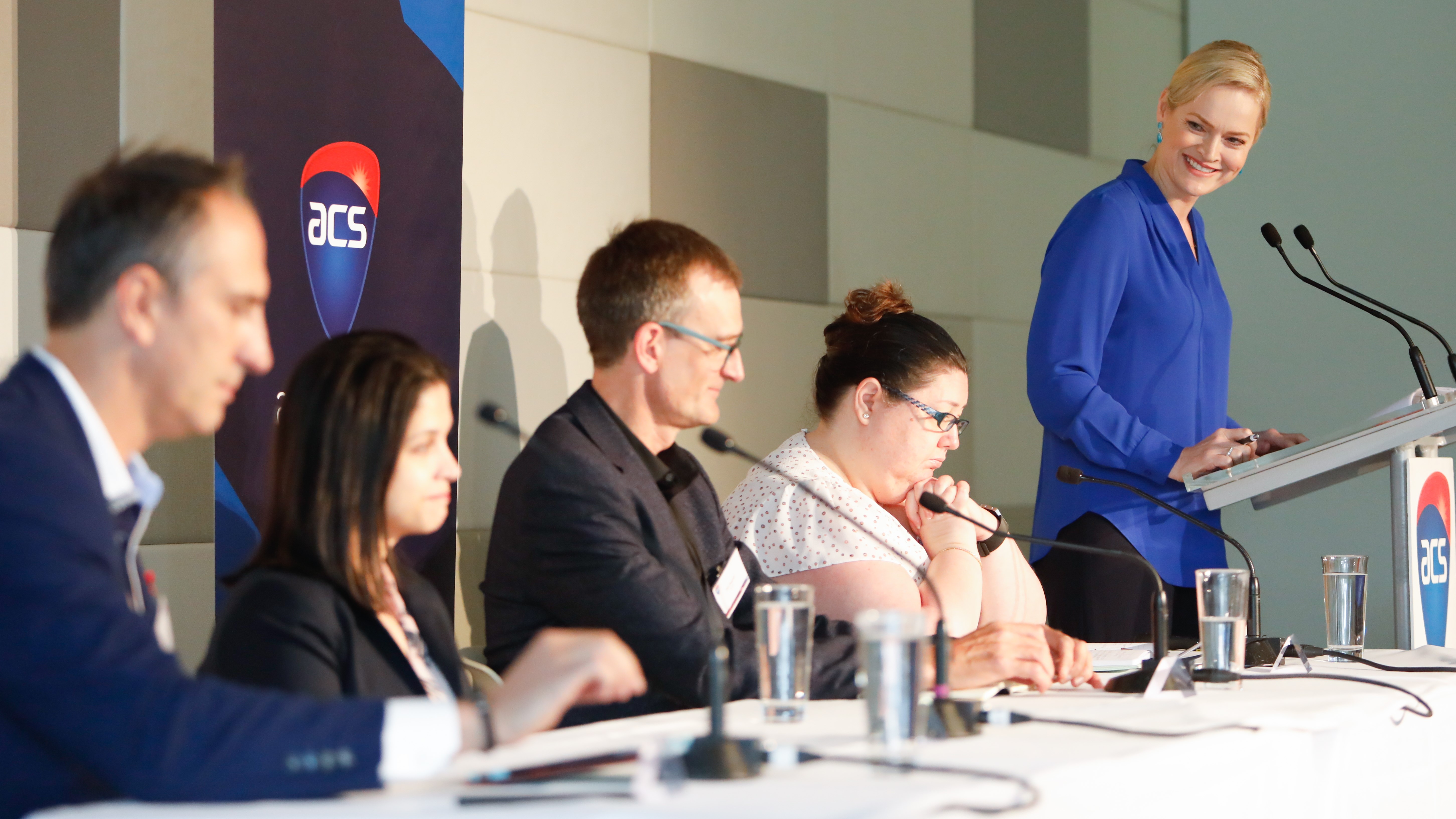Creating meaningful change now will help shape the strengthened and diverse workforce of the future.
That was one of the take-home messages at ACS’s 2018 Diversity breakfast panel held at ZINC Federation Square in Melbourne on 21 February.
The panel comprised of Tim Fawcett, Director Corporate and Government Affairs at Cisco Systems Australia; Françoise Russo, CIO at TOLL Group; Chris Venter, General Manager Consumer Digital Technology at ANZ; and Kistin Gunnis, Founder, Professional Women's Lunches.
Also speaking at the event was Victorian Innovation Minister, Philip Dalidakis, who addressed the 125 guests on the topic of “Driving Inclusion and Diversity in the ICT Sector.”
“Melbourne is globally known as the world’s most liveable city, having the best coffee, being the world’s greatest sporting and event capital,” he said.
“But that all pales into insignificance if we can be known globally as the world’s most inclusive capital, having the best and most diverse workforce.
“Now that is something to aim for and work towards.”
To do this, he said Victoria must “make sure that the change we talk of is the change we deliver.”
The event was held in the lead-up to International Women’s Day 2018 on 8 March.
The theme for this year’s campaign, #PressforProgress, aims to create momentum towards achieving gender parity, following a 2017 World Economic Forum report which found gender parity is over 200 years away.
Alongside gender equality, discussion also addressed the under-representation of key demographics across the ICT sector.
ACS last year found that only 12% of Australia’s ICT workforce were aged 55 and over, compared to 16% in the national workforce.
ACS Victoria Branch Chair, Maria Markman, said ACS can help boost the industry through encouraging diversity in the ICT sector.
“Today’s event shows that diversity is being taken seriously by major players in the technology sector and we are on our way to achieving greater inclusion,” she said.
“This will deliver benefits to the economy, the workforce and indeed the community.
“We have a role to play as the professional association, but it is ultimately up to employers, government and the education sector to take the practical steps to achieve diversity targets.
“Based on the insights uncovered today, it looks like we are on the right track.”










